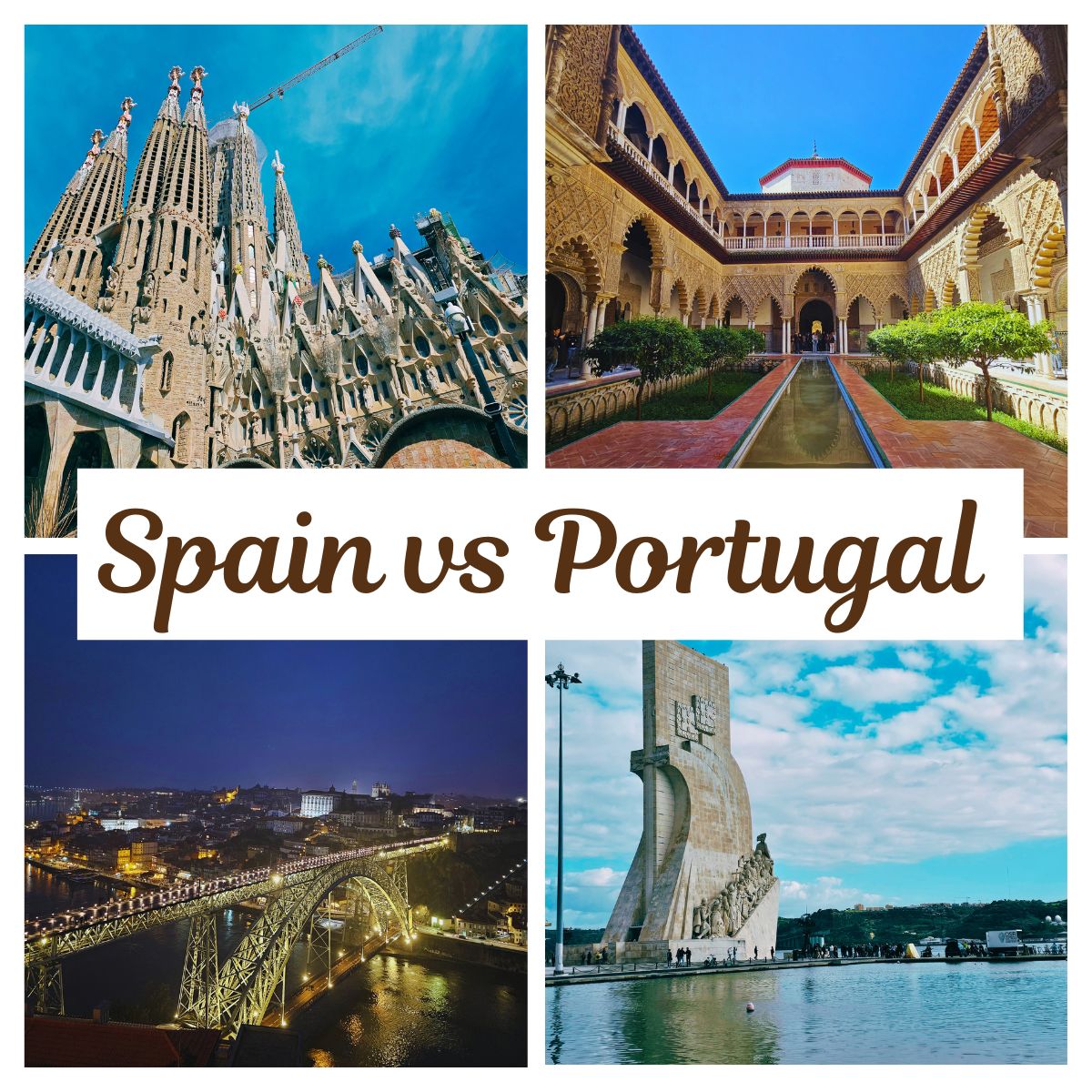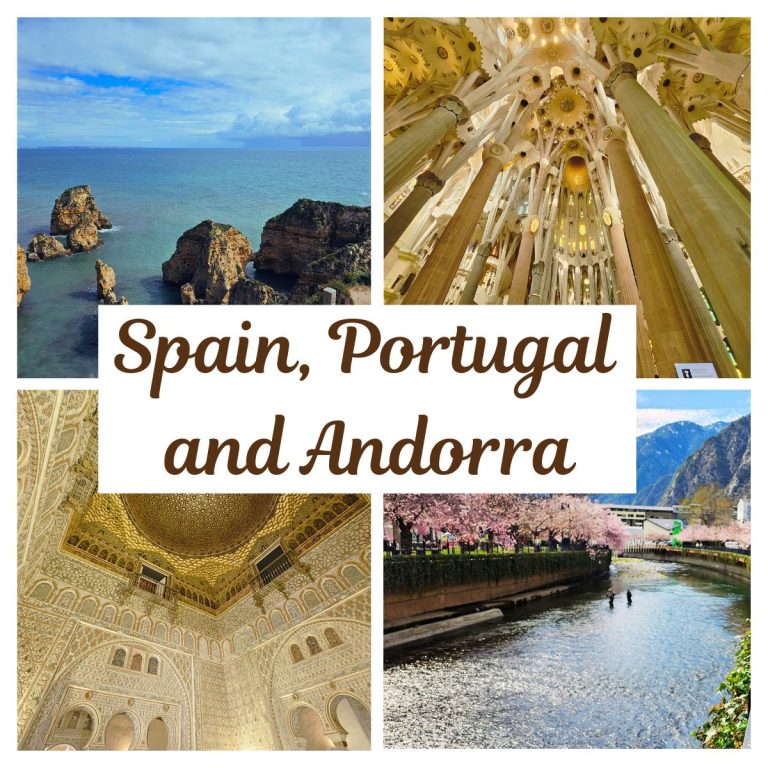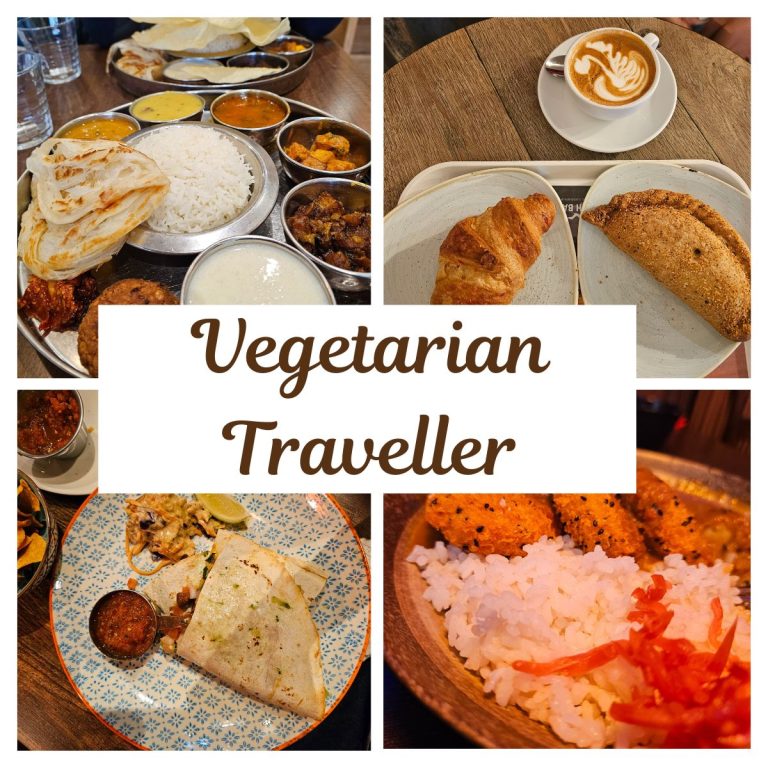Spain vs. Portugal: 6 Surprising Differences We Noticed on Our Trip
Keer and I embarked on a 14-day trip to Spain and Portugal, expecting the two neighbouring countries to feel similar. However, as we travelled, we quickly realized how distinct each country was. From city layouts to ticket booking experiences, each offered something unique. We didn’t expect such contrast, but it made the journey even more memorable. Keep reading to discover the 6 surprising differences we noticed!
Language & Communication
Before the trip, I used Duolingo to learn a few words of Portuguese, which definitely helped with understanding menus and everyday phrases. In Portugal, whether in larger cities or smaller ones like Aveiro, English was commonly spoken, so language was never an issue. Spain, however, was different. The more Spanish you know, the better. Most people spoke only Spanish, so it was crucial to know the language. Still, with a bit of effort and Google Translate, we managed in both countries.
City Layout & Architecture
During our 14-day trip, we explored Portugal first, followed by Spain. As soon as our bus from Faro, Portugal entered Spain, we immediately felt the shift. Portugal’s roads were narrow and intimate, often adorned with beautiful tilework, while Spain’s wide roads and grand boulevards gave a more expansive feel. In Portugal, the houses were cosy and homely, while in Spain, they were stately and imposing. Both countries have unique architectural styles—Portugal feels peaceful, while Spain exudes vibrancy.
Cost of Travel
Travel in Portugal felt much more budget-friendly compared to Spain. For example, a cab ride from Porto Airport to the Ribera cost around 14 Euros for 21 km, while a cab ride from Granada Cathedral to the Granada Airport was about 30 Euros for 18 km. Accommodation and food were also more economical in Portugal, making it a great choice for travellers on a budget, while Spain was noticeably pricier in comparison.
Ticket Availability & Booking
In Portugal, getting tickets to attractions was easy—we often booked them on the same day without any hassle. Spain, on the other hand, was a different story. Tickets on official sites were often sold out, and buying from third-party vendors was ridiculously expensive. To navigate this, we relied on some essential travel apps that made searching and booking tickets much easier. If you’re planning to visit popular spots in Spain, it’s best to book at least two months in advance to avoid overpaying.
Locals & First Impressions
People in Portugal felt very approachable and welcoming. From the immigration officer to waitstaff at restaurants, everyone we interacted with was warm, accommodating, and often cheerful. In Spain, our experience was more mixed. Some locals came across as reserved and not particularly open to tourists—perhaps a sign of tourist fatigue. That said, there were lovely exceptions, like our kind Airbnb host in Seville who took the time to explain things to us in great detail.
Overall Vibe & Atmosphere
Each place we visited had its own distinct feel. In Portugal, cities like Porto, Aveiro, and Lagos felt relaxed, intimate, and easy-going. Lisbon was an exception—more vibrant and bustling, with long queues at popular tourist spots. Spain, on the other hand, had a consistently grand and lively vibe across all cities we visited—whether it was Seville, Granada, or Barcelona. Everywhere in Spain felt energetic and full of tourists, adding to the city’s dynamic atmosphere.
Conclusion
Both Spain and Portugal have their own unique charm. For budget travellers, Portugal may be the better pick—with more affordable transport, accommodation, and attraction tickets. It’s also ideal for those seeking a slower-paced, relaxed vacation. Spain, on the other hand, is perfect for travellers who love energy, grandeur, and vibrant city life. If you ask us—and if you have the time—we definitely recommend visiting both. We’re so glad we did, and experiencing both countries made the trip even more memorable.
If you’re travelling vegetarian in the region, check out our tips to stay veggie on the Iberian peninsula to avoid common pitfalls.



